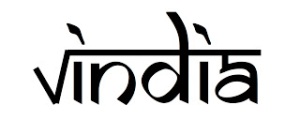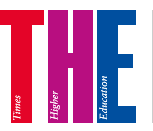Karoline Pershell is Assistant Professor of Mathematics, University of Tennessee at Martin. She is spending a semester with us at the University as a Fulbright-Nehru Teaching Scholar. After coming across her blog, Radical India (its a math joke, see the image on the right) I thought I would request her to do a guest post on this blog, to tell us about her experience at the UoH. She was kind enough to respond positively (Thanks, Karoline!), and here is her post, titled
Hearty Thanks.
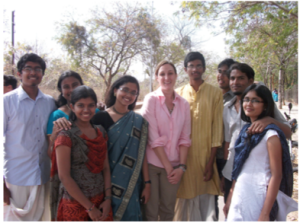 When I applied for the Fulbright-Nehru Teaching Scholar position in the summer of 2011, I had never considered where in India I would be placed. With so many universities and IIT’s in the country, it was serendipitous that my online searches from the other side of the globe showed me the Mathematics Training and Talent Search Programme, with the founding organizer at the University of Hyderabad. A few email exchanges later, and I told the US consulate that I would like to go to U of H. I arrived on December 28, began classes on January 2, and it has been an exciting semester!
When I applied for the Fulbright-Nehru Teaching Scholar position in the summer of 2011, I had never considered where in India I would be placed. With so many universities and IIT’s in the country, it was serendipitous that my online searches from the other side of the globe showed me the Mathematics Training and Talent Search Programme, with the founding organizer at the University of Hyderabad. A few email exchanges later, and I told the US consulate that I would like to go to U of H. I arrived on December 28, began classes on January 2, and it has been an exciting semester!
Based on student comments, I think I have demanded a lot from them on a daily and weekly basis, but my students in the Integrated Masters of Science program have risen to the challenge! I am impressed by their questions, by their participation, by their enthusiasm for the material in class, and excitement for their studies outside of class.
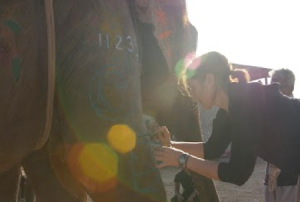 My students have made my time here extremely rewarding. Through them I have learned about Indian culture, Hinduism, holidays, festivals, customs and even visited some of their homes. I have learned about their career ambitions and attempted to help in whatever way I can, by passing along opportunities or just encouraging their passions.
My students have made my time here extremely rewarding. Through them I have learned about Indian culture, Hinduism, holidays, festivals, customs and even visited some of their homes. I have learned about their career ambitions and attempted to help in whatever way I can, by passing along opportunities or just encouraging their passions.
I have taken advantage of so many (too many??) things UoH offers, like plays and festivals, lectures and conferences, and sports! (Yeah…I didn’t know what a wicket was when I came here. Silly Americans.) I have traveled outside of Hyderabad as well, in an attempt to get to know a little more about India (Jaipur, Delhi, Agra and Kochi), while spreading the love of math. (See photos of doing math on an elephant… )
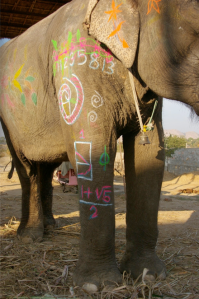 It was strange to find myself amongst a group of all Americans at a recent conference in Kochi for the Fulbright-Nehru scholars, researchers and students who are in South and Central Asia. I greatly enjoyed hearing about the work that Fulbrighters across the subcontinent are pursuing and excited that I am lumped together with such amazing people.
It was strange to find myself amongst a group of all Americans at a recent conference in Kochi for the Fulbright-Nehru scholars, researchers and students who are in South and Central Asia. I greatly enjoyed hearing about the work that Fulbrighters across the subcontinent are pursuing and excited that I am lumped together with such amazing people.
Besides sharing research, I believe many Fulbrighters used this time with other Americans to commiserate, to look at someone from your own culture and have the person validate that you have had a rough go during the year, as travel always requires compromises.
However, I can’t complain.
Everything has run so smoothly for me since before I arrived that I assumed other Fulbrighters were having similar experiences. I had taken for granted the incredible work that Professor Kumaresan (Dean of the School of Mathematics and Statistics at the University of Hyderabad) and Prof KPN Murthy (Director of the Center for Integrated Studies) have done.
From my health to my living arrangements, from my transportation to my course load, Prof Kumaresan has brought me to Hyderabad as his guest and given me the autonomy to run my course as I deem appropriate. Profs Kumaresan and Murthy are passionate about the students learning to problem solve for themselves (as opposed to regurgitate on exams). I think I convinced the mathematics chair that I feel the same way, and as such he had enough faith in me to: teach a required course for the majors; adjust the grading scale to place emphasis on the homework and outlines (things which are necessary to learning the material, but often are not given any allotment in the grading scheme); and to require daily writing from the students.
Like Kumaresan, I believe we need to teach the students to think, and that may mean stepping back and showing them how to teach themselves. As my semester is winding down, I realize how far from the norm my class is, and appreciate the opportunity that the Department of Mathematics and the Center for Integrated Studies is giving me to share my passion with the students, and expose the students to possibly a different teaching style.
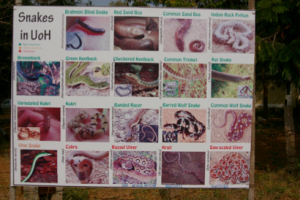 Finally, I would like to highly recommend the University of Hyderabad as a location for future Fulbright placement. The opportunities at the university for a professor to teach or do research are probably similar to other universities throughout India, but the level of assistance, respect and freedom in the classroom that is given to professors far exceeds that of anything I have heard from other Fulbrighters.
Finally, I would like to highly recommend the University of Hyderabad as a location for future Fulbright placement. The opportunities at the university for a professor to teach or do research are probably similar to other universities throughout India, but the level of assistance, respect and freedom in the classroom that is given to professors far exceeds that of anything I have heard from other Fulbrighters.
Being dropped alone in a foreign country can be daunting (see sign of poisonous snakes on campus), but the reception I have received in Hyderabad has made me feel at home.

Thank you for this opportunity and I hope that I have given back to UoH at least a fraction of all that UoH has given me.
Cheers,
Karoline
PS: Please notice that I am a Fulbright-Nehru Scholar: the exchange goes both ways! Please consider applying for a Fulbright-Nehru position for Indian citizens at http://www.usief.org.in

